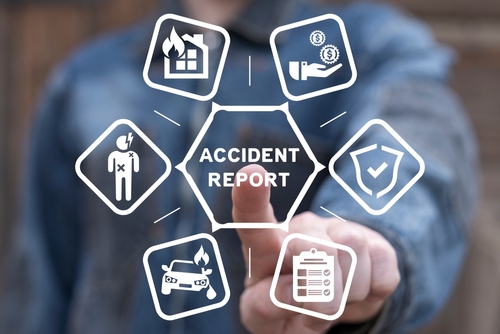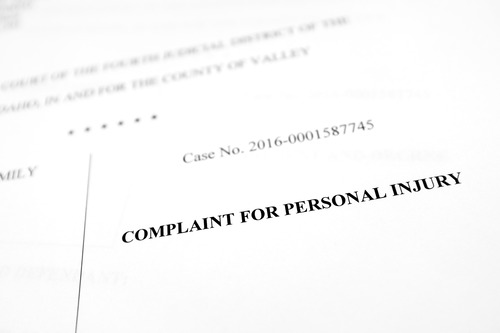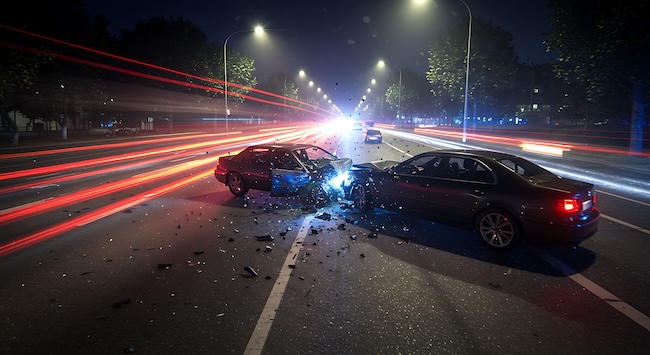Understanding the Impact of Weather on Car Accident Claims
Bad weather is a leading factor in many serious crashes, and it often makes the claims process far more complex. At Mogy Law TN, we know firsthand how weather conditions affect car accidents and the challenges they create for injury victims seeking justice. Rain, snow, ice, fog, and high winds not only increase the risk of collisions but also complicate the process of determining fault and recovering fair compensation.
This is where having the guidance of an experienced Memphis car accident lawyer can make all the difference. Insurance companies frequently attempt to shift blame onto the weather itself rather than the negligent driver. With skilled legal representation, you can prove that unsafe driving behaviors — such as speeding on wet roads or failing to use headlights in fog — were the true cause of your injuries.
Overview of Weather-Related Car Accidents: Frequency, Severity, and Unique Risks
Weather-related car accidents are common, especially in areas prone to sudden changes in weather or severe storms. According to national statistics, nearly one in five auto accidents involve adverse weather conditions. These crashes often result in serious injuries due to reduced control, limited visibility, and slippery surfaces. Icy roads, wet pavement, and poor drainage can all increase the chances of losing control or being involved in a rear-end collision.
The Role of Weather Conditions as a Contributing Factor in Auto Accidents
Insurance companies and courts look closely at how weather conditions affect car accident claims. Bad weather can be a contributing factor, but it does not automatically excuse negligent behavior. Drivers are expected to adjust their driving habits—slowing down, increasing following distance, and using headlights—when facing poor weather. If a driver fails to take reasonable precautions, they may still be held responsible for the accident, even if the weather played a role.
Why Insurance Companies and Courts Scrutinize Weather in Car Accident Cases
Insurance companies often try to blame the weather to reduce or deny claims, arguing that the accident was “unavoidable” due to rain, snow, or other conditions. Courts, however, look at all the evidence, including the driver’s actions, road conditions, and whether proper safety measures were taken. The presence of adverse weather does not remove a driver’s duty to operate their vehicle safely. Gathering weather reports, witness statements, and physical evidence from the accident scene can make all the difference in proving liability.
At Mogy Law TN, our experienced car accident attorneys know how to investigate weather-related accident cases and fight for fair compensation. If you have questions about how weather conditions affect your car accident claim, contact us for essential guidance and a free consultation.
Common Types of Adverse Weather and Their Effects
Weather conditions can change the way we drive and the risks we face on the road. At Mogy Law TN, we have seen how weather related car accidents can cause serious injuries and complicate car accident claims. Understanding how different types of bad weather affect car accident liability is important if you want to receive fair compensation after a crash.
Rain and Wet Roads
Rain is one of the most common causes of weather related car accidents. Wet pavement reduces tire traction, making it easier to lose control of your vehicle. Hydroplaning can happen even at low speeds, causing drivers to slide uncontrollably. Visibility drops in heavy rain, which increases the risk of rear end collisions or sudden braking accidents. Insurance companies often look at whether drivers used appropriate safety measures, like turning on headlights or slowing down, when determining fault in these cases.
Snow, Sleet, and Icy Conditions
Winter weather brings unique dangers, especially on icy roads or snow-packed surfaces. Drivers often lose control, leading to multi-car pileups or rear end crashes. Black ice is especially hazardous because it is almost invisible, yet extremely slippery. If a driver fails to adjust their speed or driving habits in these conditions, they may be found negligent—even if the weather contributed to the crash. Accident victims in these cases often face challenges with insurance companies, who may try to blame the weather instead of the driver’s actions.
Fog and Reduced Visibility
Fog creates low visibility, making it hard to see other vehicles, road signs, or hazards. Chain-reaction collisions are more likely in thick fog, since drivers may not have enough time to react. Using headlights and maintaining a safe following distance are crucial safety measures. When reviewing a car accident claim, police officers and insurance adjusters will check if drivers took reasonable precautions in the fog.
Extreme Temperatures and High Winds
Cold weather can impact your vehicle’s performance. Tire traction decreases, batteries can fail, and anti lock brakes may not work as expected. High winds can push vehicles into other lanes or off the road, especially for larger vehicles. Drivers are expected to adjust their speed and grip the wheel firmly during strong gusts. Failing to do so may affect car accident liability if a crash occurs.
If you have been in a weather related accident, an experienced car accident attorney at Mogy Law TN can help you gather crucial evidence, deal with the insurance company, and pursue fair compensation. Every type of adverse weather brings its own set of risks and legal questions—having the right guidance can make all the difference in your car accident case.
How Weather Conditions Influence Liability After a Crash
Weather conditions play a major role in car accident liability. At Mogy Law TN, we often help clients who have been involved in car accidents during rain, snow, ice, or fog. Many drivers think that bad weather excuses them from fault, but the law expects everyone to adjust their driving habits to match road and weather conditions.
Duty of Care in Adverse Weather
Every driver has a duty of care, which means they must drive safely for the current conditions. In adverse weather, this includes slowing down, increasing following distance, using headlights, and making sure windshield wipers and brakes work properly. For example, if a driver is going the speed limit on icy roads but loses control and causes a car crash, the insurance company or court may find that the driver failed to take reasonable precautions. The law expects drivers to adjust to poor weather conditions, not just follow posted speed limits.
Comparative Negligence and Shared Fault
Tennessee follows comparative negligence rules. This means more than one driver can share fault in a car accident case. If you were rear-ended during heavy rain but did not have your headlights on, the insurance company might argue you share some blame. Courts review all the details: Was someone speeding on wet roads? Did a driver fail to use windshield wipers in a storm? Even if weather contributed to the crash, drivers are still responsible for taking appropriate safety measures. If both drivers made mistakes, the court will divide fault between them, and your compensation may be reduced by your percentage of fault.
Multiple Parties and Contributing Factors
Sometimes, liability goes beyond just the drivers involved. Poor drainage, uncleared snow, or broken traffic signals can also contribute to weather-related car accidents. In these cases, a municipality or another party responsible for road maintenance may share liability. For example, if a city fails to clear ice from a major intersection and several vehicles are involved in a pileup, accident victims may have a claim against the city. Proper road maintenance and clear signage are crucial, especially during severe weather.
At Mogy Law TN, our experienced car accident attorneys investigate every factor that could affect your claim. We gather evidence, review police reports, and consult weather reports to determine if weather played a role and if anyone failed to meet their duty of care. If you have questions about how weather conditions affect car accident claims or want to know your options after a weather-related accident, reach out for a free consultation. We are here to help you receive fair compensation.
Gathering Evidence in Weather-Related Car Accident Claims
When weather conditions contribute to a car accident, gathering strong evidence is essential for proving liability and protecting your right to fair compensation. Insurance companies often try to blame “bad weather” alone, but at Mogy Law TN, we know that a thorough investigation can make all the difference in your car accident claim.
The Importance of Immediate Documentation at the Accident Scene
After a weather-related car accident, your first step should be to document the accident scene as soon as it is safe to do so. Take clear photos and videos of the vehicles, road conditions, and surrounding area. Capture details like icy roads, standing water, fog, or debris. These images help show how weather played a role and whether drivers took appropriate safety measures.
Types of Crucial Evidence
Several types of evidence can support your case and help determine fault in weather-related accident cases:
- Weather Reports and Official Advisories: Collect weather reports or warnings issued at the time of the crash. These can confirm the presence of adverse weather conditions such as heavy rain, snow, or fog.
- Photos of Road Conditions, Vehicle Damage, and Accident Debris: Take detailed photos of wet pavement, icy spots, snowbanks, poor drainage, and any vehicle damage. These images help establish the severity of the weather and its impact on the accident.
- Physical Evidence: Skid Marks and Vehicle Data: Skid marks, vehicle positions, and data from onboard computers (such as speed and braking) can show if a driver lost control or failed to adjust to poor weather conditions.
- Witness Statements and Police Reports: Gather witness statements from other drivers, passengers, or bystanders who saw the accident or the conditions leading up to it. The police report will also document the officer’s observations and may note whether weather contributed to the crash.
How an Experienced Car Accident Lawyer Can Help Preserve and Present Evidence
An experienced car accident attorney at Mogy Law TN knows how to secure and present evidence that supports your claim. We can request official weather records, interview witnesses, and work with experts to analyze vehicle data and accident scene details. We also ensure that evidence is preserved before it is lost or destroyed, which is critical in weather-related accident cases.
If you have questions about what evidence you need or how to protect your rights after a weather-related accident, our law firm offers a free consultation. We are here to help you receive fair compensation and guide you through every step of the claims process.
Navigating the Insurance Claims Process
Dealing with insurance after a weather-related car accident can be overwhelming. At Mogy Law TN, we help clients understand how weather conditions affect car accident claims and guide them through each step. Insurance companies often use bad weather as a reason to minimize payouts, so it is important to know your rights and how to protect your claim.
Insurance Company Tactics in Weather-Related Crashes
Insurance companies often argue that adverse weather, not the other driver’s actions, caused the crash. They may try to deny or reduce your claim by blaming factors like icy roads, heavy rain, or poor visibility. Adjusters might suggest that no one is at fault because the accident happened during severe weather. However, drivers are still expected to take reasonable precautions—like slowing down or using headlights—even in poor weather conditions.
To counter these tactics, we focus on proving that negligent behavior was involved. For example, if a driver was speeding on wet pavement or failed to use windshield wipers during a storm, that can show they did not drive safely for the conditions. Our team gathers physical evidence, such as police reports, weather reports, and witness statements, to establish liability and support your car accident claim.
Understanding Your Coverage
Knowing your auto insurance policy is essential after a weather-related accident. Comprehensive coverage typically pays for damage from weather events like hail or flooding, while collision coverage applies if you hit another vehicle or object during bad weather. Not all policies cover every type of weather-related accident, so review your policy details or speak with your insurance agent if you have questions.
After a crash, file your insurance claim as soon as possible. Provide clear details about the accident, include photos of the accident scene and vehicle damage, and get a copy of the police report. If weather played a role, document the conditions with photos and official weather reports. This evidence can be crucial if the insurance company tries to deny your claim.
Working with Insurance Adjusters
When talking to an insurance adjuster, be honest but cautious. Stick to the facts and avoid admitting fault. Adjusters may look for statements they can use to lower your compensation. Do not accept a quick settlement without understanding the full extent of your injuries and property damage.
If you feel pressured or unsure, contact an experienced car accident attorney at Mogy Law TN. We can communicate with the insurance company on your behalf, help you avoid common pitfalls, and make sure your claim is handled fairly. Our goal is to help you receive the compensation you deserve, even when weather conditions make your case more complicated.
If you have questions about your insurance claim after a weather-related car accident, reach out for a free consultation. We are here to help you every step of the way.
Legal Strategies and Car Accident Lawsuits Involving Weather
When weather plays a major role in a car accident, proving liability and securing fair compensation can become more complicated. At Mogy Law TN, our car accident attorneys know how insurance companies use adverse weather to limit payouts or deny claims altogether. Below, we explain the key legal strategies we use to help accident victims when weather conditions affect car accident claims.
Proving Negligence Despite Adverse Weather
Insurance adjusters often argue that no one is at fault in a weather-related accident, blaming the crash on rain, snow, or icy roads. However, drivers are still required to take appropriate safety measures even in poor weather. This means slowing down, increasing following distance, and using headlights or windshield wipers as needed. If a driver fails to adjust their driving habits to meet the demands of wet roads, heavy rain, or icy conditions, they can be found negligent.
Our law firm gathers evidence such as weather reports, traffic camera footage, and physical evidence from the accident scene. We also review police reports, vehicle data (like speed and braking), and witness statements to show that the other driver did not act with reasonable care. This allows us to build a strong case, even when the insurance company tries to argue that weather alone caused the crash.
Comparative Fault and Its Impact on Compensation
Tennessee follows a modified comparative negligence rule. This means that if you are found to be partially at fault for a weather-related car accident, your compensation is reduced by your percentage of fault. For example, if you are 20% at fault for driving too fast on wet pavement, and your damages total $50,000, you could still recover $40,000.
It is important to remember that if you are found to be 50% or more at fault, you cannot recover damages from the other party. Our experienced car accident lawyers work to minimize your share of fault by highlighting the other driver’s negligent behavior and showing that you took appropriate safety measures.
The Value of Legal Representation
Weather-related accident cases require careful analysis and strong advocacy. An experienced car accident attorney from Mogy Law TN can make all the difference by:
- Investigating the accident thoroughly
- Collecting and preserving crucial evidence
- Negotiating with the insurance company to counter unfair blame-shifting
- Taking your case to court if the insurer refuses a fair settlement
If you have questions about how weather conditions affect car accident claims or if you need help with your case, contact us for a free consultation. We will review your accident, explain your legal options, and fight for the compensation you deserve.
Prevention: Staying Safe in Poor Weather Conditions
Adverse weather conditions are a leading cause of car accidents in Tennessee and across the country. At Mogy Law TN, we have seen how wet roads, icy conditions, and poor visibility can turn a routine drive into a serious accident. While you cannot control the weather, you can take steps to reduce your risk and protect yourself and others on the road.
Essential Safety Measures
Driving safely in bad weather starts with making smart decisions behind the wheel. Always reduce your speed when roads are wet, icy, or covered in snow. Increase your following distance to allow more time to react if the vehicle in front of you brakes suddenly. Use your headlights in rain, fog, or snow to improve visibility for yourself and other drivers. Avoid sudden maneuvers like sharp turns or hard braking, as these can cause you to lose control, especially on slick surfaces.
Stay alert for changing road conditions. If you see standing water, do not try to drive through it. Hydroplaning is a real danger in heavy rain or on wet pavement. In winter weather, be cautious on bridges and overpasses, which freeze before other parts of the road.
Importance of Regular Vehicle Maintenance
Proper vehicle maintenance is one of the most effective ways to prevent weather-related car accidents. Make sure your tires have adequate tread and are properly inflated for better traction on wet or icy roads. Check your brakes regularly to ensure they respond quickly and smoothly. Replace windshield wipers at the first sign of streaking or skipping, as clear visibility is crucial in rain or snow.
Keep your lights, including headlights and taillights, clean and functional. In cold weather, check your battery and antifreeze levels. Well-maintained vehicles are less likely to break down or contribute to a crash in severe weather.
Regional Considerations
Tennessee drivers face a range of weather hazards, from sudden downpours and fog to winter storms and icy roads. Prepare for local conditions by keeping an emergency kit in your car, including blankets, a flashlight, and non-perishable snacks. In areas prone to flooding, learn alternate routes and avoid driving through water. If snow or ice is in the forecast, allow extra travel time and consider postponing non-essential trips.
At Mogy Law TN, we encourage all drivers to stay informed by checking weather reports before heading out and taking appropriate safety measures. Your actions behind the wheel can make all the difference—not just for your own safety, but for everyone sharing the road.
If you have questions about how weather conditions affect car accident claims or need help after a weather-related accident, contact our experienced car accident attorneys for a free consultation. We are here to provide the essential guidance you need.
Frequently Asked Questions
How do weather conditions affect car accident claims?
Weather conditions such as rain, snow, ice, and fog can play a major role in car accidents. Insurance companies often review the weather at the time of the crash to decide if it was a contributing factor. However, even if bad weather played a part, drivers are still expected to take reasonable precautions. If someone failed to slow down on icy roads or ignored warnings about severe weather, they may still be held liable. At Mogy Law TN, we help clients show how weather conditions affected their car accident claims and fight for fair compensation.
Who is responsible if bad weather contributed to my crash?
Responsibility, or liability, in weather-related car accidents depends on the actions of each driver. If a driver failed to adjust their speed, did not use headlights in fog, or followed too closely on wet roads, they could be found at fault—even if the weather was poor. Sometimes, other parties like a city or county may share liability if poor drainage or uncleared snow contributed to the crash. An experienced car accident attorney can help determine all liable parties.
What evidence is most important in proving fault?
Strong evidence is key in weather-related accident cases. Important items include weather reports from the day of the crash, photos of road and vehicle conditions, police reports, and witness statements. Vehicle data (like speed and braking) and physical evidence at the accident scene—such as skid marks—can also help. Our law firm works to gather and preserve this evidence to support your claim.
Can I recover compensation if I’m partially at fault due to weather?
Yes. Tennessee uses comparative negligence rules. This means you can still recover compensation even if you share some blame, as long as you are less than 50% at fault. Your compensation is reduced by your percentage of fault. For example, if you are found 20% at fault, your damages award will be reduced by 20%. Mogy Law TN can help you understand how comparative negligence applies to your case.
What should I do immediately after a weather-related car accident?
After a weather-related car accident, make sure you are safe and check for injuries. Call the police to report the crash. Take photos of the accident scene, road conditions, and any vehicle damage. Gather witness statements if possible. Exchange information with other drivers and contact your insurance company. It is also wise to consult with a car accident lawyer before speaking in detail with an insurance adjuster.
How can a car accident lawyer help in these cases?
A car accident lawyer can help by investigating the crash, gathering crucial evidence, and dealing with the insurance company. We know how weather conditions affect car accident claims and can counter arguments that try to blame the weather instead of negligent behavior. Our team at Mogy Law TN will fight to make sure you receive fair compensation for your injuries and losses.
Does insurance always cover weather-related accidents?
Insurance coverage depends on your policy. Comprehensive coverage may pay for weather-related damage, while liability and collision coverage may help if another driver is at fault or if you are partially at fault. Insurance companies sometimes try to deny claims by blaming the weather. Having an experienced attorney can make all the difference in getting your claim approved.
What if multiple vehicles are involved?
In multi-vehicle crashes during poor weather, determining liability can be complicated. Each driver’s actions are reviewed, and sometimes more than one party shares fault. Physical evidence, police reports, and witness statements become even more important in these cases. Our law firm can sort through the details and help you pursue claims against all responsible parties.
How does comparative negligence work in weather-related cases?
Comparative negligence means that fault is divided among all involved parties. If you are partially at fault for a car crash during adverse weather, your compensation is reduced by your share of blame. For example, if you are 30% at fault, you can still recover 70% of your damages. Mogy Law TN can help you understand your rights and work to minimize your share of fault.
Why You Need Legal Help When Weather Conditions Affect Car Accident Claims
Weather conditions add layers of difficulty to car accident claims. Factors like heavy rain, icy roads, or fog can change how accident liability is determined and affect your ability to recover fair compensation. Insurance companies often try to blame the weather to avoid paying what you deserve, but the law still requires every driver to take reasonable precautions, no matter the weather.
If you are involved in a weather related car accident, it is important to gather as much evidence as possible. This includes photos of the accident scene, weather reports, physical evidence like skid marks, and witness statements. These details can make all the difference in proving that another driver’s negligent behavior—such as speeding on wet pavement or failing to use headlights—was the real cause of the crash.
Comparative negligence rules may come into play, especially in cases where both drivers’ actions contributed to the collision. Even if you were partly at fault due to poor weather conditions, you may still be able to recover compensation with the help of an experienced car accident attorney. At Mogy Law TN, we know how weather conditions affect car accident claims, and we have the experience to challenge insurance company tactics and present strong evidence on your behalf.
If you have suffered injuries in a weather related accident, do not try to handle the claims process alone. Our law firm offers a free consultation to review your case, explain your rights, and discuss the best way forward. Let our team help you gather crucial evidence, deal with the insurance company, and pursue the compensation you need for your recovery. Contact Mogy Law TN today to speak with an experienced car accident lawyer who will stand by your side every step of the way (414) 334-5472






